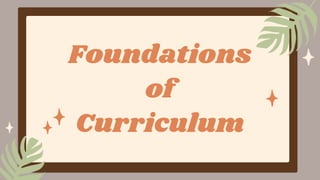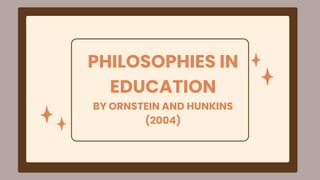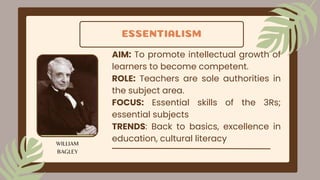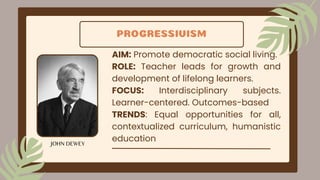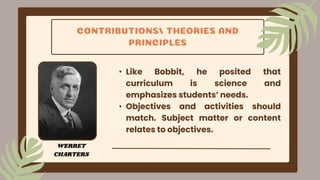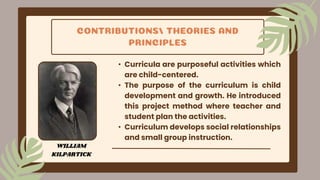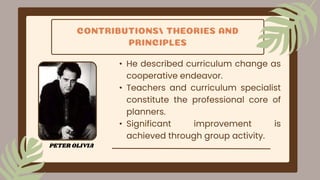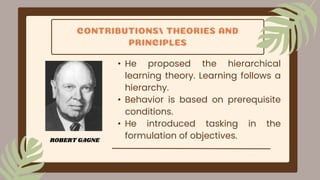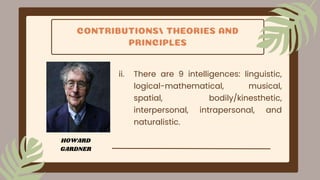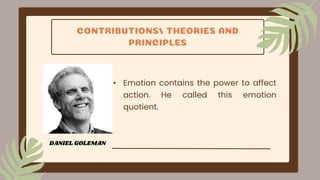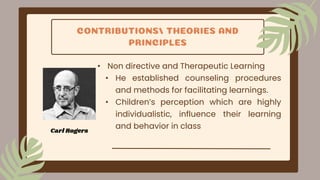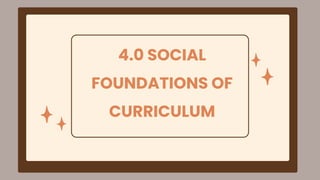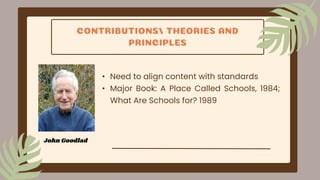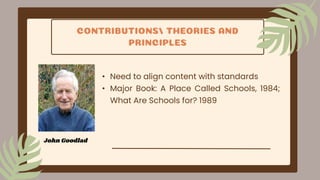The document discusses the philosophical, historical, psychological, and social foundations of curriculum. It outlines key theories and contributors to each foundation. For the philosophical foundation, it describes the perspectives of perennialism, essentialism, progressivism, and reconstructionism. The historical foundation outlines early curriculum theorists like Franklin Bobbitt and Ralph Tyler. The psychological foundation covers behaviorism, cognitive information processing theory, and humanistic psychology. Jean Piaget, Lev Vygotsky, and Howard Gardner are discussed. The social foundations section explores the influence of society on education through theorists like Emile Durkheim, Alvin Toffler, Paulo Freire, and John Goodlad.
